[FAQs] Chartered Accountant (CA) – General Questions
- CA|Exam|
- 12 Min Read
- By Taxmann
- |
- Last Updated on 20 November, 2023
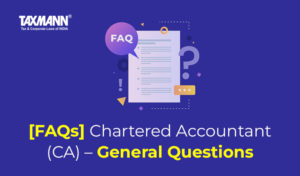
FAQ 1. Chartered Accountants in fields like Art, Cinema, Dance, etc. Is it possible?
Conventionally, many students after clearing the CA exams, opt for their own practice or take up a job in private/public sector and there always remains an unanswered question in their mind, whether a CA can pursue his/her dream that is not related to their core background?
Well, the answer here is Yes! Listed below are some of the prominent personalities who debunked all the myths and slashed all barriers by making their presence in the field of art, cinema, dance, media, etc.
Shekhar Kapoor

Shekhar Kapoor is an actor, director and producer. After holding the prestigious CA qualification, he started working with a multinational oil company. Thereafter, he worked several years as an accountant and management consultant but at last he followed his heart and his passion for acting. He started acting and then entered into direction of the movies. He directed some of the famous movies like Mr. India, Guru, etc.
Sanjay Subrahmanyan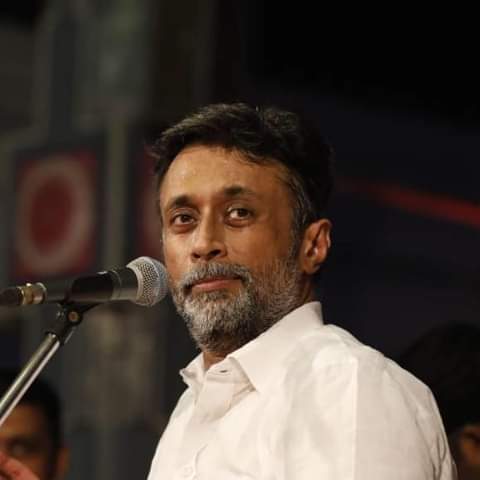
Sanjay Subrahmanyan is a Carnatic vocalist. He is a Chartered Accountant and a rank holding Cost accountant. He began learning music at the age of seven. His commanding voice and energetic rendition style have been widely appreciated. He was awarded the title of “Sangita Kalanidhi” by the Madras Music Academy in December 2015. This is the highest honour that can be bestowed on a Carnatic musician.
Shyam Pathak
Shyam Pathak is an actor and comedian. He comes from a middle-class Gujarati family. Nowadays, he is playing the role of “Patrakar Popatlal Pandey” in the famous comedy show “Tarak Mehta Ka Oolta Chashmah” which airs on SAB TV. He is a chartered accountant but instead of choosing the finance and accountancy field, he decided to pursue acting and joined the National School of Drama.
Subhasini Giridhar
Subhashini Giridhar is an Indian classical dancer – Bharatnatyam. She started learning dance from her childhood and became a Chartered Accountant in 2003. She is a practicing CA who also follows her passion for dancing with equal zeal and dedication. She has been giving her solo performances since 1990 and has also performed in various sabhas.
Aroon Purie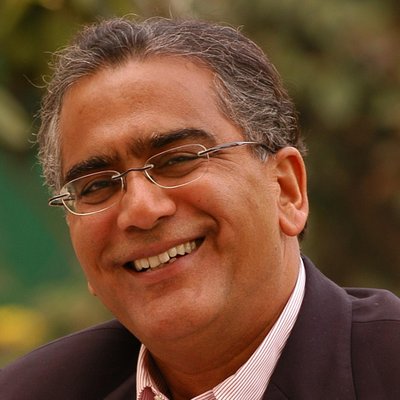
The Founder-Publisher and the Chairman of Living Media, popularly known as India Today, Mr. Aroon Purie, is also a Chartered Accountant. He also holds a graduation degree from the London School of Economics. He moved from one job to another and finally entered into the field of journalism. He is honored with Padma Bhushan (2001) for making his exceptional contribution to the field of journalism.
FAQ 2. Some ministers who are also CA.
CA is one of the most respected professions and a good number of young students aspire to become Chartered Accountants to practice in the field of Finance and Accounts. However, there are some CAs who chose to serve the country and join politics.
Here are some of the famous politicians who are also Chartered Accountants.
Suresh Prabhu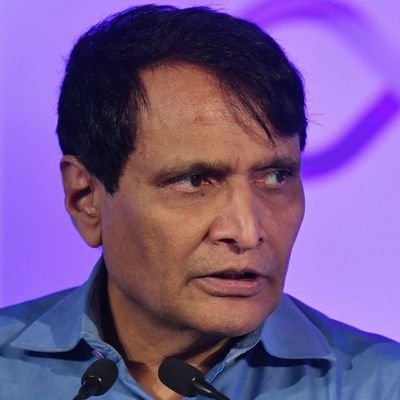
Suresh Prabhakar Prabhu is an Indian politician. He was India’s Sherpa to the G7 and G20, and has held positions such as Minister of Civil Aviation, Railways, Commerce and Industry. He is a Fellow Chartered Accountant from ICAI and also secured an All India Rank in his CA exams.
Piyush Goyal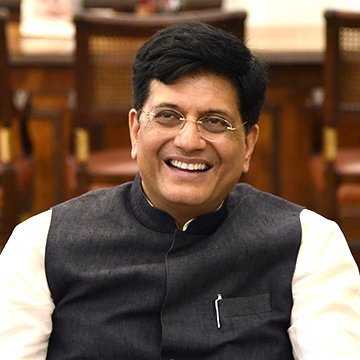
Piyush Goyal is one of the most famous CA-turned-politician. He was an all India second rank holder in CA exams. Piyush Goyal is a cabinet minister of the Government of India having portfolios such as Minister of Textiles, Minister of Commerce and Industry and Minister of Consumer Affairs, Food and Public Distribution.
K. Rahman Khan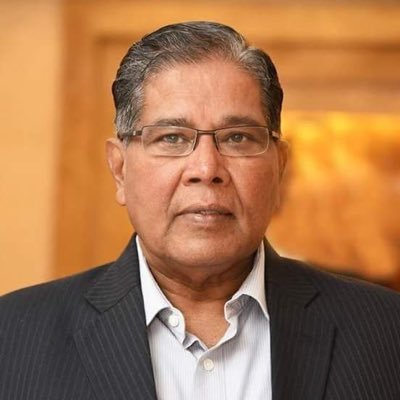
Senior Congress leader K. Rahman Khan is also a Fellow Chartered Accountant of ICAI.The veteran Congress leader from Karnataka is a former Union Minister of Minority Affairs (during 2012-14).
Naresh Gujaral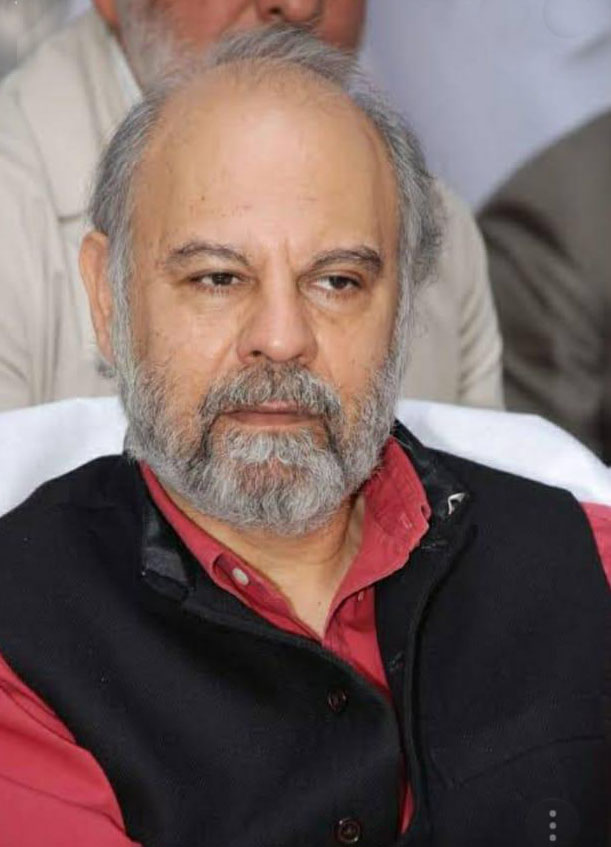
Naresh Gujaral is the son of the former Prime Minister Inder Kumar Gujral. Senior Shiromani Akali Dal (SAD) party politician and parliamentarian, Naresh Gujral, is also a Fellow Chartered Accountant from ICAI. He is currently a Member of Parliament of the Rajya Sabha.
FAQ 3. How to register for CA?
Anyone who wants to register for the Chartered Accountancy course must have passed his/her class 10th examination conducted by an examining body constituted by law in India or an examination recognized by the Central Government or the State Government as equivalent thereto, in order to provisionally register for Foundation Course; or he/she may also register after class 12 examination.
For registration, one has to visit the official website of ICAI (www.icai.org) and register for the CA Foundation exam of the Chartered Accountancy Course.
Moreover, following candidates can choose a Direct Entry Route to Intermediate course without going for CA Foundation:
- Commerce stream graduates or post graduates with minimum 55% marks
- Other stream graduates or post graduates with minimum 60% marks.
- Candidates who have passed the Intermediate level of the Institute of Companies Secretaries of India or the Institute of Cost Accountants of India.
FAQ 4. How much time is required in order to complete the CA Course?
One can register for the course in two ways:
- After clearing Class XII examinations, register for Foundation Course
- By Direct entry route i.e. after completing Graduation or Post Graduation
Both the routes involve different time requirement for the course completion.
CA through Foundation Route: The minimum duration of the Chartered Accountancy Course for a person joining after Class 12th is 4.5 years.
CA through Direct Entry Scheme: The minimum duration of the Chartered Accountancy Course for a person joining after Graduation/Post Graduation is 3 years.
FAQ 5. Should one begin CA Course after 12th or after graduation?
The major and notable difference is that after completion of Class XII, the candidate first needs to clear the Foundation exam as a part of Chartered Accountancy course. However, if the candidate has attained his/her graduation degree, he/she can take direct admission into Intermediate course, which is the second stage after CA Foundation.
Usually opting for CA course right after clearing class XII examination is preferred, since it helps the students begin with the course early besides continuing with the graduation parallely which can result in saving time to attain both the degrees (CA as well as graduation).
FAQ 6. What is the total expenditure to be incurred for CA Course?
Countless number of students from commerce as well as other streams get themselves enrolled for the Chartered Accountancy course every year. There are varied reasons as to why a great number of students get registered for the course, one of those reasons being high demand of Chartered Accountants in India who are sufficiently paid for their expertise. Moreover, the over-all expense that has to be incurred for completion of Chartered Accountancy course is much lesser than many other courses in India. The entire CA Course takes approximately five years to complete with a total course fee of around Rs. 1,90,000 to 2,90,000 (including coaching center fees). If a candidate does not opt for a separate coaching institute, then the over-all expenditure comes down to an approximate of Rs. 85,000 to 90,000, which includes all expenses such as registration fees, examination fees and training fees.
FAQ 7. Subject wise details of all the stages of CA exam.
Chartered Accountancy is one of the most prestigious degrees and it is known as a professional course that enables the student pursuing the course, gain sound technical knowledge for managing finance, accountancy, taxes and legal compliances of any organization. To gain such sound knowledge, a candidate needs to study below subjects during the three stages of CA examinations.
CA Foundation
- Principles and Practices of Accounting
- Business Law & Business Correspondence and Reporting
- Business Mathematics and Logical Reasoning & Statistics
- Business Economics & Business and Commercial Knowledge
CA Intermediate
- Accounting
- Corporate and other laws
- Cost and Management Accounting
- Taxation
- Advanced Accounting
- Auditing and Assurance
- Enterprise Information System & Strategic Management
- Financial Management and Economics for Finance
CA Final
- Financial Reporting
- Strategic Financial Management
- Advanced Auditing and Professional Ethics
- Corporate and Economic Laws
- Strategic Cost Management and Performance Evaluation
- Elective Paper
- Direct Tax Laws and International Taxation
- Indirect Tax Laws
FAQ 8. What is the salary of a CA?
CAs are in a great demand in almost all the industries in India and overseas. The average minimum salary of a newly qualified CA varies from Rs. 5 lakhs to 6 lakhs per annum. The salary can be as high as 45 lakhs p.a. if the CA is employed overseas. The CTC can be different for different geo-locations and can also differ from company-to-company based on normal industry practices.
FAQ 9. Is CA Course difficult to crack?
Although many students opt for CA Course for their bright future, it is believed that Chartered Accountancy is one of the toughest exams to crack. A candidate needs to have a lot of patience, persistence and hard work to become a Chartered Accountant. Along with these qualities, one needs to plan the curriculum/ studies tactfully.
As has been quoted very correctly by Benjamin Franklin,
“If you fail to plan, you plan to fail.”
Needless to say, if a candidate has a right preparation strategy, it becomes easy to clear CA examinations with flying colors.
FAQ 10. How much does a CA charge for his/her services?
CAs in practice charge differently based on the services provided by him, the volume of transactions, the responsibility and skill required to do the said work, and such other factors.
Note: The Institute of Chartered Accountants of India has recommended the range of the CA fees separately for different cities and based on the services provided by CAs (https://cmpbenefits.icai.org/wp-content/uploads/2020/02/Details-download.pdf) Accordingly, ICAI members who are holding COP may charge the minimum fees as provided by ICAI in their guidelines.
FAQ 11. Can a CA be labeled as a financial doctor?
CAs have numerous responsibilities and they play different roles such as tax consultants, who advice on tax planning, assessment and represents clients before tax authorities; business advisors and decision makers in the field of investment, finance, banking, insurance, merger and acquisition, liquidation, etc.
A Chartered Accountant is often referred to as a “Financial Doctor” since just like a doctor, a CA plays a different role in every stage of business from its incorporation to its liquidation. Moreover, CAs are said to be the doctors of financial health of an organization since a CA possesses a sound knowledge about every aspect like legal, taxation, accounting, management and finance of any legal entity being a company, a partnership or a proprietorship firm.
FAQ 12. Why everyone needs a CA?
Chartered Accountancy is one of the most in-demand professional qualifications in the country. Almost every organization needs CAs to handle accounting, finance, and audit. A Chartered accountant is a person who is an expert in fields like auditing, accounting, and taxation.
An appropriate financial advice is needed by every organization – a company, partnership firm and even a sole trader as well as a salaried individual. Chartered accountants prepare not only the balance sheets of a company and file tax returns, but also manage business accounts, and make the best financial decisions under the legal framework.
Depending upon the requirement, the role of CA ranges from restructuring business procedures to augmenting financial process flow that are uniquely tailored to match the client needs.
CA is also a globally recognized qualification, so CAs are considered perfectly suited for a global scale qualification. The training program for chartered accountants is also meant to make them aware of the industry work, face any circumstances, and how to treat complex and difficult matters of the finances of an organization.
Thus, CAs tend to serve almost all organisations’ business needs like proper financial channeling, restructuring, accounting, auditing or advices, etc. which makes them the most sought-after professionals.
FAQ 13. How many CAs are in India?
Chartered Accountants are known as the members of ICAI. After completing the course and also the mandatory trainings, a candidate can become a member of the institute. As per the statistics available on https://resource.cdn.icai.org/69738key-statistics.pdf, there are 3.27 lakh CAs in India as on 1st April 2021.
FAQ 14. Can CA be done by non-commerce students?
The minimum educational qualification required to get admission in CA course is Class XII from any recognized board. The student can be from any stream and not compulsorily from commerce stream. If the candidate is a non-commerce student and has cleared Class XII examinations, all he/she has to do is get enrolled for the Foundation Course.
On successfully clearing the foundation exam, one gets eligible for the next stage of CA exams viz. Intermediate.
Furthermore, the Direct Entry Route to Intermediate course without going for CA Foundation is also available for graduates or post graduates with minimum marks who can be from Commerce or any other stream.
FAQ 15. CA vs. CS vs. CMA vs. ACCA vs. CFA vs. CPA
The Accounting and Finance industry offers various opportunities to learn via various courses and make a career. One can choose the course meeting his/her academic and other requirements. Some noteworthy details regarding various professional courses is provided herewith:
CA: Chartered Accountant
A CA is an internationally recognised financial professional who manages budgets, auditing, taxes and business strategies for clients.
Chartered Accountant is one of the most prestigious qualifications in India. CA is considered to be well-versed in the field of accounting and taxation. Students who are interested in pursuing a career in accounting, taxation (which includes direct and indirect taxation) or auditing should pursue CA.
CS: Company Secretary
A Company Secretary (CS) is responsible for the efficient administration of a company, particularly with regard to ensuring compliance with statutory and regulatory requirements. This professional course focuses studies on the Company’s Act, Rules and Regulations and many such other laws and compliances. For students who are passionate about company law and wish to possess expertise in this field, CS is the perfect option for them.
CMA: Cost Management Accountant
Cost and Management Accountant (CMA) Course is more based on analytical skills and understanding the concepts of cost-related issues and better management decisions. A CMA is responsible for the allocation, management and regulation of funds in a business entity. CMAs are well demanded in MNCs. Students who are interested in pursuing a career in costing, budgeting, and financial analysis can choose to opt for CMA.
ACCA: Association of Chartered Certified Accountants
ACCA is the world’s leading and fastest-growing international accountancy organization which provides high standards of employee learning and development in accountancy. If one has a flair for accounting and want to pursue it as a career in a global context, then ACCA is a great choice. One can also join this course if he/she wishes to add proficiency to his/her existing accounting skill sets.
CFA: Chartered Financial Analyst
CFA is a professional credential offered by the CFA institute which focuses basically on financial analysis. Any professional or student who wants to get into the investment banking environment and portfolio management can decide to opt for CFA. Good financial analysts are always in demand in the business sectors. Anyone who is interested in financial markets and economic studies can go for CFA.
CPA: Certified Public Accountant
A CPA is the highest standard of competence in the field of Accountancy across the globe. Students who are interested in pursuing a career in US-GAAP, IRS (taxation) or related audit functions in US MNCs or would want to pursue practice in USA should take up CPA. Many students choose CPA after CA to enhance their experience in the world of finance and accountancy and to broaden the spectrum of opportunities for them.
FAQ 16. Does ICAI provide Campus Placement?
In order to connect and bring together the Newly Qualified Chartered Accountants (NQCAs) and the recruiters on a common platform, the scheme of the campus interviews was introduced by the Committee for Members in Industry & Business (CMI&B) of ICAI to provide prospective employers and the young members an opportunity to interact and explore the possibility of taking up employment in various organizations.
Any organisation, irrespective of its size, standing in the market and boundary of its business, can take part in this placement programme being held at several centers across the country for which they have to pay a certain fees.
CA Institute organizes campus placement twice a year for newly qualified CAs in May and November term and the campus interviews are scheduled at various centres which are divided into two parts viz. Bigger centres and Smaller Centres.
After becoming a Chartered Accountant on clearing CA Final Examinations, the candidate must register himself/herself as a member of the Institute of Chartered Accountants of India (ICAI). Thereafter, he/she can register for ICAI campus placement programme at https://cmib.icai.org.
Note: Before applying for Campus Placement programme, one must make sure that he/she is in genuine need of a job and any delay or refusal, after being selected or accepting any offer, may cause job loss to other needy candidates.
FAQ 17. Is any exemption available in other courses like CS, CMA, etc. on completion of CA Course? Or,
Can CS/ CMA be pursued along with CA?
The various exemptions available for other similar courses while pursuing CA have been mentioned herewith –
| CA-related Stage Completion | Simultaneous Exemption/ Stage in Other Courses |
| Register, prepare and clear CA Foundation. | One gets CS Foundation exemption (If interested in pursuing CS alongwith CA) so as to register for CS Executive directly. |
| Register, prepare and clear CA Intermediate. | One gets CMA Foundation exemption (If interested in pursuing CMA alongwith CA) so as to register for CMA Intermediate directly. |
|
|
| On completion of CA Articleship Training | One gets exemption from CMA practical training. |
| Prepare and clear CA Final. |
|
| Undergo 1 year of CS practical training if exemption is not availed. |
Note: Attendance at the other course taken up along with CA cannot be compromised and must be outside the working hours of the CA Articleship.
Disclaimer: The content/information published on the website is only for general information of the user and shall not be construed as legal advice. While the Taxmann has exercised reasonable efforts to ensure the veracity of information/content published, Taxmann shall be under no liability in any manner whatsoever for incorrect information, if any.

Taxmann Publications has a dedicated in-house Research & Editorial Team. This team consists of a team of Chartered Accountants, Company Secretaries, and Lawyers. This team works under the guidance and supervision of editor-in-chief Mr Rakesh Bhargava.
The Research and Editorial Team is responsible for developing reliable and accurate content for the readers. The team follows the six-sigma approach to achieve the benchmark of zero error in its publications and research platforms. The team ensures that the following publication guidelines are thoroughly followed while developing the content:
- The statutory material is obtained only from the authorized and reliable sources
- All the latest developments in the judicial and legislative fields are covered
- Prepare the analytical write-ups on current, controversial, and important issues to help the readers to understand the concept and its implications
- Every content published by Taxmann is complete, accurate and lucid
- All evidence-based statements are supported with proper reference to Section, Circular No., Notification No. or citations
- The golden rules of grammar, style and consistency are thoroughly followed
- Font and size that’s easy to read and remain consistent across all imprint and digital publications are applied



 CA | CS | CMA
CA | CS | CMA
